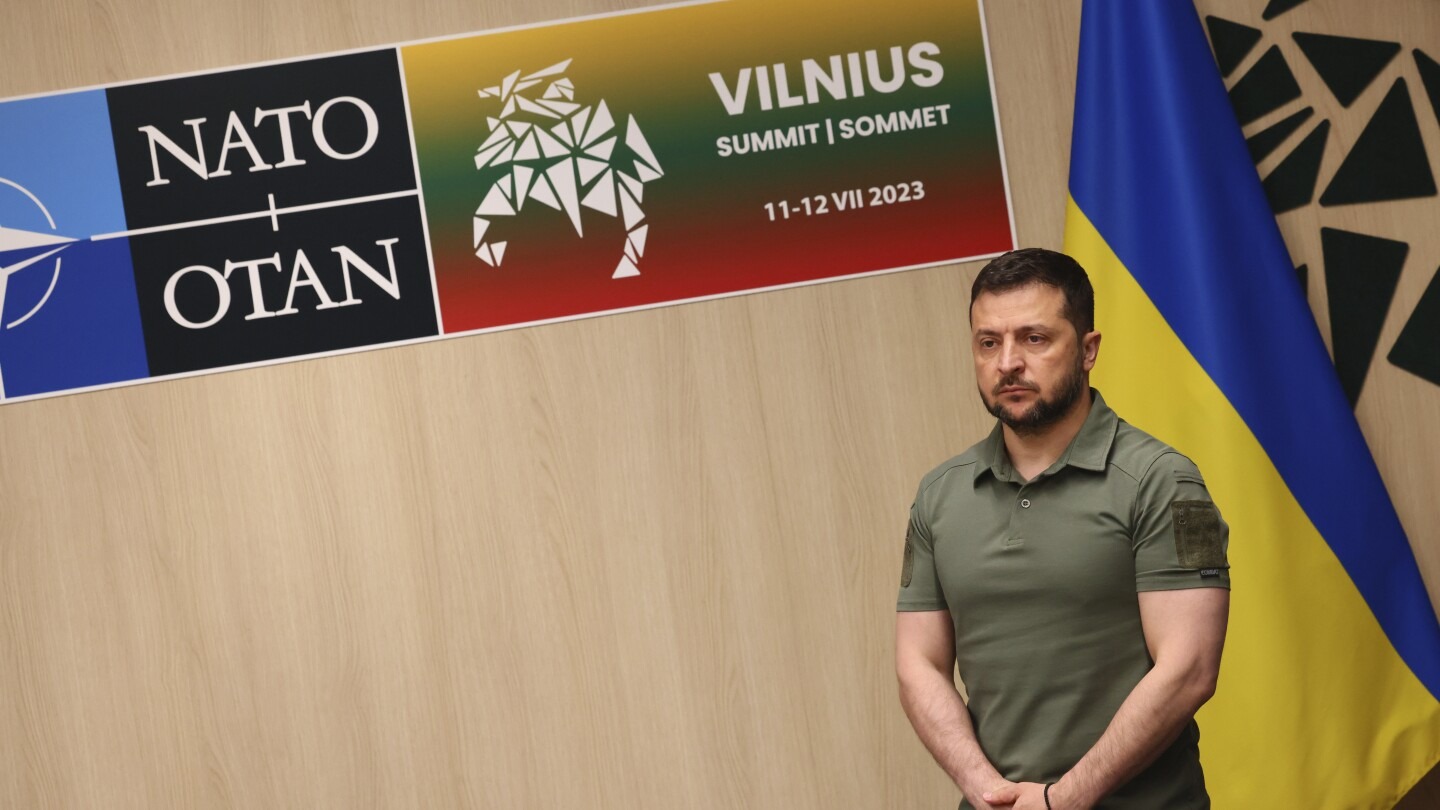Department of Security and Military Strategic Research and Studies 21-10-2024

Recent reports from The Telegraph reveal a deepening sense of despair among Ukrainian President Volodymyr Zelensky and his inner circle regarding Ukraine’s potential NATO membership. A source within Ukraine’s security services has claimed that the continued hesitance of Western nations to formally invite Ukraine into NATO has prompted serious discussions within the government about the possibility of restoring nuclear capabilities. This shift in sentiment underscores the gravity of Ukraine’s situation in the ongoing conflict with Russia, raising critical questions about security, international relations, and the role of nuclear weapons in modern geopolitics.
Zelensky’s government has consistently sought deeper integration with Western institutions, particularly NATO, viewing membership as a crucial step for ensuring Ukraine’s sovereignty and security. The aspiration to join NATO gained momentum following Russia’s annexation of Crimea in 2014 and the subsequent conflict in Eastern Ukraine. However, despite significant military and political support from NATO countries, full membership has remained elusive.
The source’s assertion that there is a growing sense of despair reflects a broader anxiety in Kyiv regarding the West’s commitment to Ukraine’s defense. This sentiment is exacerbated by the perception that Western countries do not fully comprehend the existential nature of Ukraine’s struggle against Russian aggression. The idea that possessing nuclear weapons would fundamentally alter Ukraine’s standing on the global stage has resurfaced as a topic of serious consideration.
The Nuclear Weapon Discussion

The prospect of Ukraine restoring nuclear weapons is fraught with complexity. The source emphasized a critical point: “There is an understanding that countries with nuclear weapons are treated differently.” This sentiment is rooted in the stark reality of international relations, where nuclear-armed states often command a different level of attention and respect. The notion that nuclear capabilities could serve as a deterrent against further Russian advances has gained traction among certain Ukrainian officials.
However, this idea is met with significant skepticism. Analysts caution that while the discussions might contain elements of posturing or brinkmanship, the potential implications of reinstating nuclear weapons must be taken seriously. The argument posits that having nuclear weapons would not necessarily have averted the conflict with Russia but might have escalated tensions and increased the risk of nuclear war. The introduction of nuclear capabilities would likely lead to a heightened arms race in the region, with dire consequences for security in Eastern Europe.
The Complicated Path to NATO Membership

The ongoing debate over nuclear capabilities also intertwines with Ukraine’s NATO aspirations. Analysts point out that any move towards re-establishing nuclear arms would complicate Ukraine’s prospects for joining NATO. The alliance has a strict policy regarding nuclear proliferation, particularly among non-nuclear states. Thus, pursuing nuclear weapons could create significant barriers to Ukraine’s integration into NATO, alienating key allies and jeopardizing the very security guarantees Ukraine seeks.
Furthermore, the West’s reluctance to extend a NATO invitation to Ukraine stems from concerns about provoking Russia further. NATO’s collective defense principle means that any attack on one member is considered an attack on all. The potential for a nuclear-armed Ukraine could escalate tensions not just with Russia, but across Europe, complicating the security landscape in a region already fraught with instability.
The West’s Responsibility

As Ukraine grapples with these profound security challenges, the role of the West in shaping the future of Ukrainian defense policy cannot be overlooked. The support provided by NATO countries, both militarily and economically, has been vital in bolstering Ukraine’s defense capabilities. However, the question remains whether this support will translate into a more permanent security arrangement in the form of NATO membership.
The understanding of Ukraine’s existential crisis must be at the forefront of Western discussions. Failure to acknowledge the stakes involved in Ukraine’s struggle could lead to significant miscalculations that endanger not just Ukraine, but European security as a whole. A more robust response from the West, including clearer pathways towards NATO membership, could mitigate the growing sense of despair within Ukraine and reinforce a unified stance against Russian aggression.
Conclusion : The outcome

The situation facing Ukraine is more than a regional conflict; it is a pivotal moment in the global balance of power. Zelensky’s government finds itself at a crossroads, with discussions around nuclear weapons reflecting the desperate quest for security in an increasingly precarious environment. While the allure of nuclear deterrence may seem appealing, the complexities of international diplomacy and security commitments cannot be understated. As Ukraine navigates these turbulent waters, the actions and responses of the West will play a crucial role in shaping the future of not only Ukraine but the broader European security landscape. The existential nature of Ukraine’s conflict with Russia demands urgent and thoughtful engagement from its allies, lest despair turn into desperation, with consequences that could resonate far beyond the the region.

